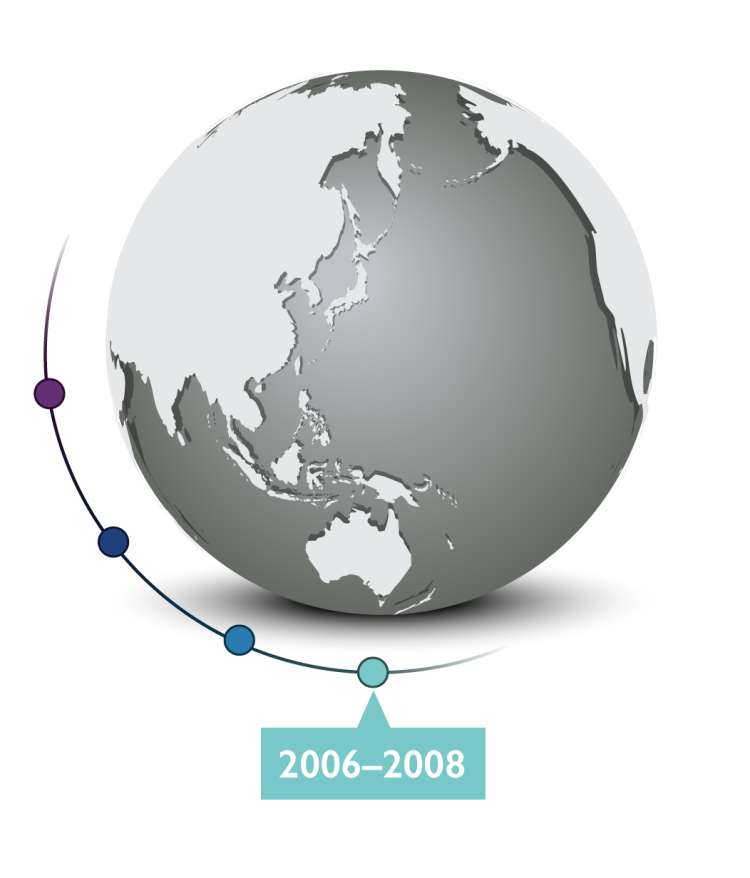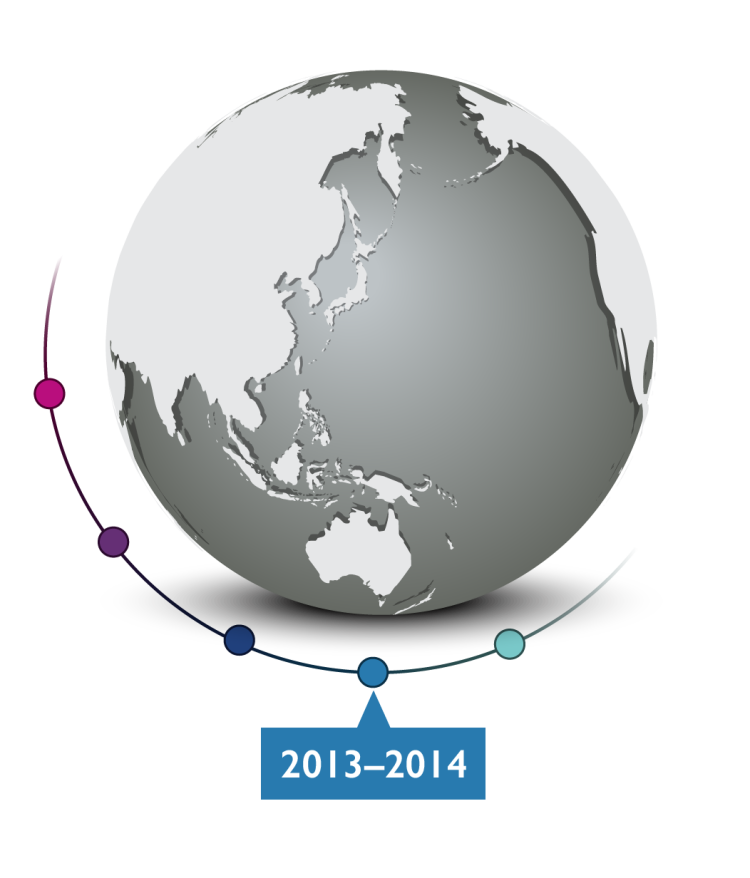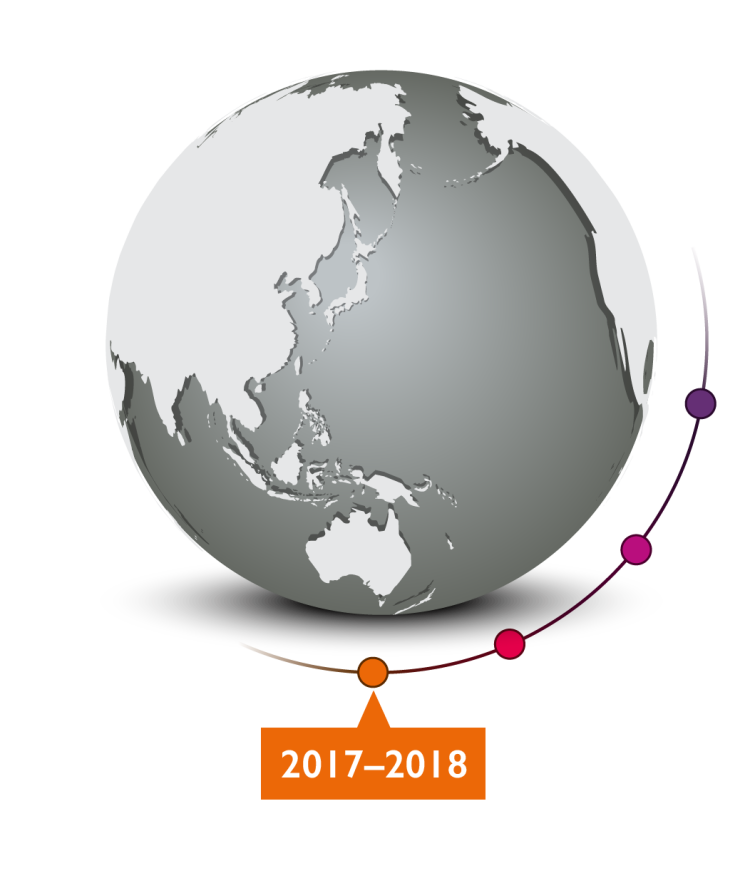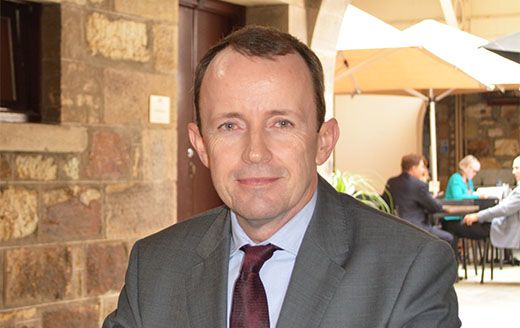A voice for the
vulnerable
QUT research helps bring child abuse
out from the shadows

Child abuse remains a major challenge for social justice in our community. QUT’s Professor Ben Mathews is working to ensure our laws protect children and allow survivors to seek justice.
Professor Mathews’s research has been instrumental in removing laws that blocked thousands of child abuse survivors from being able to seek compensation through a civil claim.

The need for change
Until recently, survivors of child abuse had only three years after turning 18 in which to make a claim.
For most types of personal injury, the time limit makes sense. Evidence is fresh, and defendants are given a reasonable opportunity to defend the claim.
However, childhood sexual abuse is different.
Psychological injuries can make it impossible to bring a civil claim, and the true extent of injuries and their connection with the abuse may not become apparent for many years. Survivors are often also at a major disadvantage due to the imbalance of power between themselves and their abuser, and any responsible institution.
Change was essential.
“This is about social justice. There is a fundamental flaw in the justice system if it excludes a certain group of vulnerable people from even having their case heard.”
Professor Ben Mathews

The work
Professor Mathews began publishing on this topic in 2003, and worked systematically to bring about reform across the country, advising state and territory governments on the need for change.
In 2015, the Royal Commission into Institutional Responses to Child Sexual Abuse recommended that all Australian states and territories immediately and retrospectively remove time limits for these cases.
Professor Mathews’s submission was cited extensively in the key chapter of the Commission’s report, providing strong evidence to influence the recommendation.
The time limit has now been abolished in seven states and territories, with South Australia the last to introduce a bill in June 2018. When it passes, Australia will become the world’s leading nation in this field.
Bravehearts
Hetty Johnston AM knows the importance of quality research in achieving such change.
Her organisation, Bravehearts, has campaigned tirelessly for decades to “change the way we as a nation deal with child sexual assault”.
“We can know something anecdotally; we can have 1000 people know it to be true from their own experiences; but to bring about change, we need evidence. That’s what Ben has given us.”
Hetty Johnston, Bravehearts

Mason’s law: mandatory reporting
Professor Mathews’s research has also led to reform that is life-changing for children currently suffering at the hands of abusers.
Every day, people working in areas such as health care and education come into contact with children they know or suspect are being physically or sexually abused, and do not report it.
Mason Parker was one of these children, and his life was tragically lost. Before his murder in 2011 at the hands of his mother’s partner, staff at his childcare centre in Townsville had concerns, but did not alert the authorities.
At the time, childcare workers in Queensland were not required by legislation to report suspected child physical abuse.
Mandatory reporting laws across Australia were inconsistent. States applied the laws to different professional groups, and Western Australia had no mandatory reporting law for physical abuse at all.
“Mandatory reporting laws were created to make sure that people don’t just look away, and that they fulfil their moral, ethical and professional obligation to take action to protect children from significant harm.”
Professor Ben Mathews

And mandatory reporting works.
Professor Mathews analysed child sexual abuse reporting data in Western Australia from three years before and four years after their mandatory reporting law was introduced.
He found that after mandatory reporting began, there were over three times the number of reports and double the number of actual child sexual abuse cases discovered – every year.
Professor Mathews was able to make a compelling recommendation to the Queensland Law Reform Commission, requiring that early childhood educators and carers report suspected cases of child physical and sexual abuse.
The Child Protection (Mandatory Reporting – Mason’s Law) Amendment Act was passed by the Queensland Parliament in 2016, making Queensland’s law more consistent with other states and territories.

Journey to impact
2006–2008
- Professor Mathews leads a study funded by the Australian Research Council on law, policy and practice of sexual abuse reporting by teachers in Queensland, New South Wales and Western Australia.
- Study results lead to a change in laws for Queensland teachers in 2011, and policy change in Western Australia.
2013–2014
- Advises Ireland’s Minister for Children and the UK House of Lords on mandatory reporting of sexual abuse.
2014
- Submission to the Royal Commission into Institutional Responses to Child Sexual Abuse, on the removal of time limits for civil claims regarding child sexual abuse.
2015
- Royal Commission report recommends that all Australian states and territories remove time limits for child sexual abuse cases. Professor Mathews’s work is cited extensively in support.
- Submission and data analysis for the Queensland Law Reform Commission’s review of child protection mandatory reporting laws for the early childhood education and care sector.
- Mandatory reporting of child abuse introduced in Ireland by the Children First Act 2015.
2015–2016
- Victoria, New South Wales and the Australian Capital Territory abolish the time limit on civil claims for sexual abuse.
2016
- Queensland Parliament passes the Child Protection (Mandatory Reporting – Mason’s Law) Amendment Act 2016.
2017–2018
- Queensland and the Northern Territory abolish the time limit on civil claims for sexual abuse. Tasmania and Western Australia also pass Bills.
- South Australia introduces a Bill to abolish time limits.







International significance
As well as being significant in Australia, Professor Mathews’s work has attracted international attention.
Tom Perry, founder of UK pressure group Mandate Now, says the research has been invaluable to their campaign – giving them crucial evidence to push for mandatory reporting of child physical and sexual abuse in England and Wales.
Perry says that reporting in the United Kingdom is characterised as “whistleblowing”, and reporters often worry about being wrong.
“Professor Mathews’s research has shown that mandatory reporting is the catalyst for culture change, and is a vital part of a functioning child protection framework.”
Contact
Email:
b.mathews@qut.edu.au
Phone:
+61 7 3138 2983
Website:
Childhood Adversity Research Program


